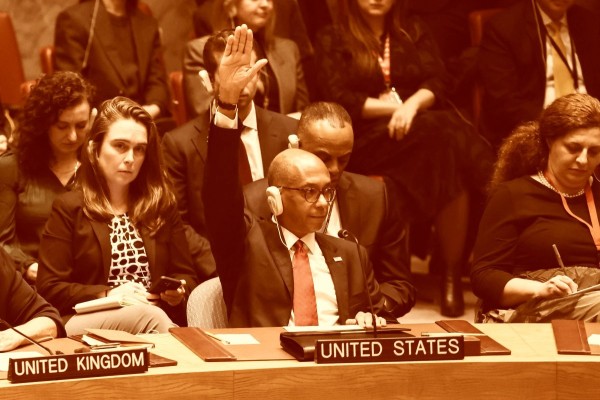Blood in the endowment
The University of Manitoba’s complicity in genocide and the collapse of academic integrity

Administration building, University of Manitoba, Winnipeg. Photo by Sancho McCann/Wikimedia Commons.
When actions fail to honor the promises that gave rise to them, and their consequences ripple outward, the speaker is left exposed, holding only their own lack of seriousness. In the academy, such unseriousness erodes our intellectual mission—a mission that depends on integrity in the hard work of describing the world as it is, envisioning the world we want, and striving toward a better one.
By its word, the University of Manitoba has professed a commitment to human rights and opposition to social harms in its investments. By its actions, the university has refused to divest from arms manufacturers who supply the tools of an ongoing genocide. While Palestinians in Gaza suffer the consequences of this global complicity, the university’s actions also indict our own institutional integrity. Here, now, our word is not our bond. So why would anyone take our intellectual mission seriously? We need to reckon not only with how we have impugned human rights, but with our own unseriousness and the damage it does to the academic integrity of our university.
The state of Israel is currently carrying out a genocide against Palestinians in Gaza.[1] Amid this genocide, the University of Manitoba’s endowment maintains equity investments in eight companies who continue to equip Israel with the tools of mass murder, despite repeated warnings about the human rights violations tied to these arms sales. These companies include Honeywell International, General Dynamics, Northrop Grumman, Lockheed Martin, RTX Corporation, Check Point Software Technologies, Oshkosh Corporation, and Rolls-Royce Holdings.[2] General Dynamics, for example, profits as the manufacturer of the MK-84 2,000-pound bomb, described by a Pentagon official as a weapon that “turns the earth to liquid,” “pancake[s] entire buildings,” and causes “instant death” to anyone within 30 metres of its blast area. This munition has been used repeatedly in Gaza, where at least 70,000 tons of explosives have been dropped. For comparison, the nuclear bomb the United States dropped on Hiroshima in 1945 contained between 12,000 and 15,000 tons of explosives.
The MK-84 has been deployed in the Jabalia refugee camp and in the Al-Mawasi tent massacre, killing 40 people and leaving 10-metre craters where densely packed tents had sheltered forcibly displaced Palestinian families trying to sleep. Last fall, the University of Manitoba owned $5.38 million in stock in General Dynamics. If we assume constant equity holdings since the 2024 UM disclosure, that value of the University’s holdings has appreciated by $2.14 million during Israel’s genocide in Gaza, while also yielding $206,000 in dividend payments[3]—a fiduciary return to our endowment’s coffers soaked in the blood of Palestinians.
These holdings contradict the university’s own stated policies. The Responsible Investment Policy’s incorporation report outlines the university’s responsibility over the companies in which its endowment trust holds equities, requiring it to “assess and respond to material risks arising from Environmental, Social and Governance (ESG) considerations,” and to “act to mitigate or prevent the social and environmental harms arising from the practices of its investees.” This aligns with the university’s commitment, contained in its five-year strategic plan (2024–29), to “work to dismantle all forms of oppression […] and uphold human rights,” as well as with the broader mission of the institution: “applying knowledge in partnership with diverse communities to promote the cultural, social and economic wellbeing of the people of Manitoba, Canada and the world.” How can these commitments mean anything if they do not include recognition of a currently unfolding genocide, and divestment from the companies that aid and abet it?
Last fall, a group of professors, students, staff, and alumni drafted a resolution to divest from these eight companies and sought support from the university community (you can read our resolution here, and, if you wish, sign it here). We took this resolution to the responsible parties for the university’s endowment, hoping to bring it before the Trust Investment Committee. The administration blocked our effort, preventing a meeting. They informed us that “the University’s legal counsel has advised that divestment is only contemplated in two specific circumstances” in regards to the Responsible Investment Policy, namely, investments in fossil fuels and investments that harm the rights of Indigenous peoples of Canada. I agree that such investments merit divestment, but if our social and ethical responsibilities end there, we abdicate any sense of the word ‘responsibility’ that our university brandishes for its public image.
Instead of social responsibility, the university’s investment managers concerned themselves most with fiduciary responsibility. They argued that “even limited divestment can have a disproportionate impact on investment returns and, by extension, on the university’s ability to fulfill donor intentions and support scholarships, bursaries, and other programs that directly benefit students.” To translate from legalese: the university maintains that our investments in the death machinery of General Dynamics and its ilk are simply too profitable to dissolve, and that the genocide underwriting this profitability does not even warrant consideration under the text of our Responsible Investment Policy.
Where does that leave our broader commitments to uphold human rights and to apply knowledge for social wellbeing? I have yet to hear a good answer from the administration about this, other than vague gestures toward the perennial hymn of inaction: “it’s complicated.” To me, this dereliction makes the University of Manitoba institutionally complicit in genocide, and we must reckon with the horror this complicity delivers daily to the people of Palestine. But we must also reckon deeply with how it damages our own integrity, and what that means for our academic mission.
I propose that universities now find themselves trapped in an academic trilemma, composed of three realities. First, we claim to apply knowledge for wellbeing, to dismantle all forms of oppression, to uphold human rights, and to use these commitments to structure our ethical responsibilities over institutional investments. Second, we currently hold investments in companies whose basis of profit is war and, in this case, genocide, denying life, safety, and dignity to the people of Palestine. Third, we as an academic community claim to take ideas seriously, to examine the world we live in, and to reflect critically on how we live in it.
These three realities cannot coexist, for any two of them together preclude the third. We cannot hold investments that rob life from the world, claim simultaneously to uphold an ethical and socially responsible investment policy, and continue to insist that we take ideas seriously. Something has to give.
As I see it, we have three choices. One option would be to abandon the idea that we have an ethical policy to guide our institutional wealth. That at least would have the merit of honesty, though it would be a moral disaster. Another option would be to abandon the notion that we take ideas seriously. This would mean that we lose our ability to earnestly engage the world, and would be equipped simply to buttress, but never challenge, the status quo. We would need to rebrand less as ‘lyceum’ and more as ‘training institute for prairie capitalism.’ In fact, I would suggest this is already our current, default position, and it is not the academy that any of us deserve.
But there is a third option—the one that I think we must pursue. We could take seriously our ethical principles about where we park our wealth, including what kinds of partnerships we enter into, and use our intellectual faculties to evaluate and enact how we live in the world. That route has a name: divestment. And divestment pairs best with boycott and sanctions.
This third choice would bring challenges, and it would take moral courage. However, unless and until we take that path seriously, our unseriousness—about who we really are as universities, as academics, as intellectuals—will speak volumes, from the Canadian prairies to the killing fields in Palestine.
Jonathan Jenner is an assistant professor of Economics and Global Political Economy at the University of Manitoba, and a senior researcher at the South African Research Chair in Industrial Development (SARChI-ID) at the University of Johannesburg.
Endnotes
1. The United Nations Independent Commission, the International Association of Genocide Scholars, Amnesty International, Médecins Sans Frontières, B’Tselem, and the Lemkin Institute, among other international organizations have described Israel’s actions in Gaza as a genocide. Many scholars share this assessment, including Rashid Khalidi, Omer Bartov, Raz Segal, Maung Zarni, Amos Godberg, Francesca Albanese, Reem Alsalem, Balakrishnan Rajagopal, and many others.↩
2. Much credit for this knowledge of the equity holdings of the University Endowment Trust goes to brave student activists from the University of Manitoba Gaza solidarity encampment, who pushed the university to disclose its investments, which the university did in the Fall of 2024.↩
3. I estimate the university’s endowment holds 13,096 shares of General Dynamics, as, according to the university’s own disclosures, 0.515 percent of the its $1.045 billion endowment is invested in General Dynamics equities. From September 2023 to the present, the value of each share has risen by $163.33, from $303.77 to $467.10, and General Dynamics has paid out dividends of $15.75 per share across that time. Because these are estimates based on incomplete data about the holdings of the university, the actual numbers will vary.↩









_600_400_90_s_c1.jpg)
